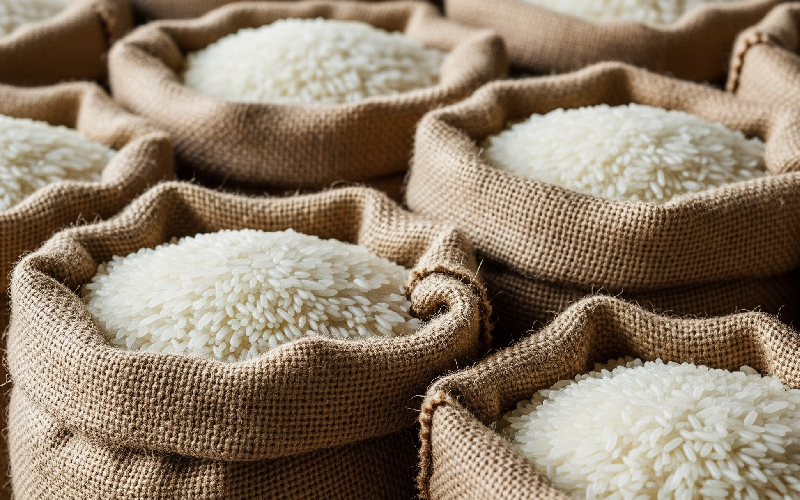Rice farmers in the Mwea Irrigation Scheme, Kirinyaga County, have strongly opposed the government’s plan to import 500,000 metric tonnes of duty-free Grade 1 milled white rice by the end of the year. The importation was authorized through a gazette notice issued by Treasury Cabinet Secretary John Mbadi, following recommendations from Agriculture CS Mutahi Kagwe.
The farmers, led by John Munene and Pius Njogu from the Thiba section, expressed concerns that the influx of imported rice will severely undermine the market for locally grown rice. They argued that despite a bumper harvest last season, much of their produce remains unsold and is currently stored in the Mwea Rice Growers Multi-Purpose Cooperative Society (MRGM) warehouses.
“We are against the move because the influx of imported rice is negatively impacting the market for locally produced rice in our scheme,” said Munene.
Kirinyaga Senator James Kamau Murango joined the farmers in condemning the decision, accusing the government of neglecting its obligation to support local producers. He pointed out that the government had previously promised to purchase over 50,000 bags of rice stored at Mwariko, yet thousands of bags remain untouched, and farmers are still waiting for payments from May.
“The government said it would buy rice in Mwariko stores. At the time, I visited various offices to push for this, and I was assured that an intervention was coming. But two months later, 15,000 bags of rice are still lying in the stores,” said Murango.
The farmers also decried delays in accessing subsidized fertilizers for the upcoming planting season, further compounding their financial strain.
They urged the government to emulate the approach taken by the previous regime under President Uhuru Kenyatta, which prioritized purchasing local rice before resorting to imports.
Murango called on the Treasury and Agriculture ministries to suspend the importation directive and instead focus on acquiring and distributing locally produced rice. “Let the government first clear the current stocks before importing more,” he insisted.
The standoff highlights ongoing tensions between national food security policies and the livelihoods of small-scale farmers, who continue to face uncertain market conditions.

